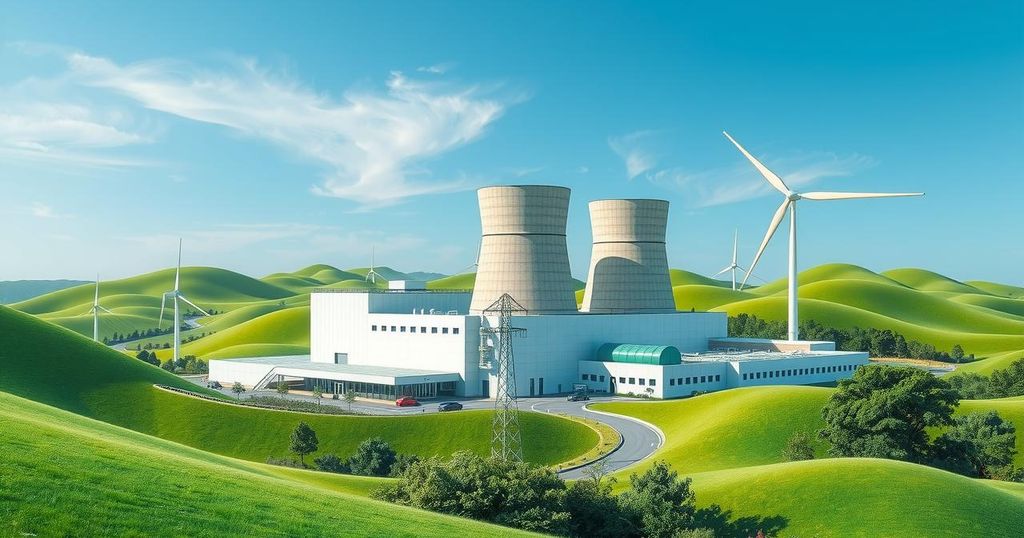Economic and Social Impacts of Angra 3 Nuclear Project on Brazil

Raúl Lycurgo, President of Eletronuclear, emphasized the economic and social benefits of completing the Angra 3 nuclear project. Currently, Brazil has two reactors providing 3% of its electricity, while key delays have impeded Angra 3’s progress since its inception in 1984. The project proposes significant job creation and investment opportunities, with the CNPE set to make a decision on its future.
Ahead of the National Energy Policy Council meeting to vote on completing Angra 3, Raúl Lycurgo, President of Eletronuclear, outlined the economic advantages of this nuclear project for Brazil. Brazil currently relies on two operational reactors, Angra 1 and Angra 2, which provide approximately 3% of the nation’s electricity. Originally initiated in 1984, the construction of Angra 3 faced multiple interruptions, including a suspension in 2015 when construction reached 65% completion.
After resuming in November 2022 with the intent to commence operations by late 2026, the project faced further delays in April 2023 due to disagreements with local authorities concerning environmental compensation and adjustments to planning permissions. Eletronuclear is now awaiting governmental direction on the project’s future. A report by Brazil’s National Bank for Economic and Social Development indicated that the cost to abandon Angra 3 would amount to BRL 21 billion (USD 3.7 billion), which nearly matches the expenses needed to finish the project.
Lycurgo emphasized that Angra 3 is more than a power generation initiative; it has the potential to catalyze significant investments in social development, create thousands of high-quality jobs, and invigorate the economy. He cited a study from the Getúlio Vargas Foundation, which found that each dollar spent on nuclear energy could yield two dollars in GDP. The project could generate approximately 7,000 direct jobs, while also significantly bolstering the employment market.
The future plant is projected to operate at a competitive rate of BRL 653.31 (USD 114) per megawatt-hour, making it economically viable compared to many thermal plants in Brazil. Its consistent and clean energy supply promises to enhance the resiliency of the electrical grid, subsequently reducing reliance on fossil fuels and their associated costs. Lycurgo remarked, “Completing the project will be a milestone for Brazil’s development… This is a decision that creates jobs, boosts the economy and reinforces the country’s commitment to sustainable and technological solutions.”
The CNPE meeting, which was set to deliberate on Angra 3, resulted in a postponement of the decision until the next meeting, according to a report from Reuters.
In summary, the Angra 3 project represents a significant opportunity to enhance Brazil’s energy landscape and economic growth. The potential benefits include substantial job creation, economic stimulation, and advancements in sustainable energy generation, reinforcing Brazil’s commitment to reducing its reliance on fossil fuels. The upcoming decisions from the National Energy Policy Council will be critical in determining the project’s future and its implications for the country’s economic and social progress.
Original Source: www.world-nuclear-news.org








